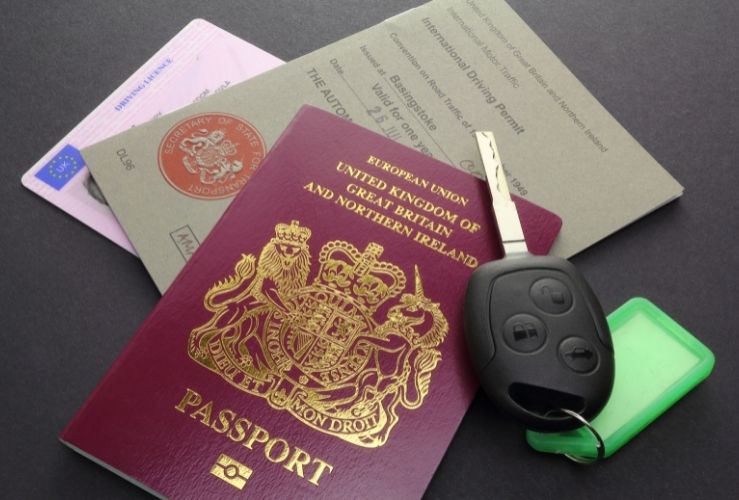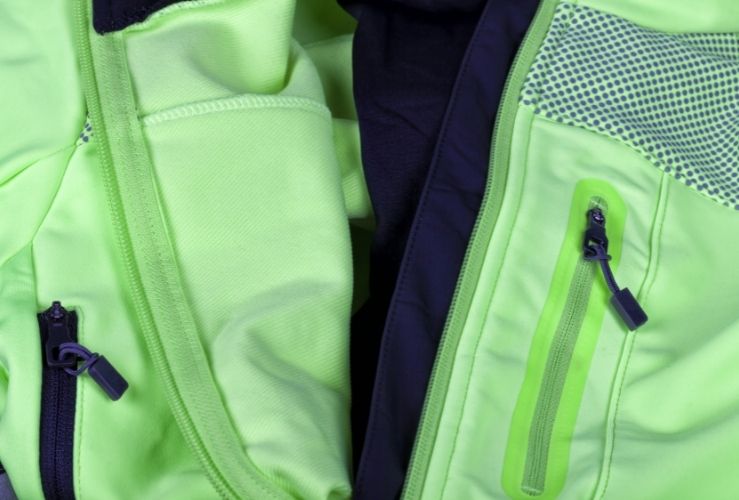When going on a trip to Europe, there is a certain freedom to taking your car with you. It gives you the chance to get to wherever you want in the area where you are staying, avoiding the need to use public transport and letting you get to some places that other tourists may struggle to get to. Best of all, you can do this at your own leisure.
However, if you are taking your car with you on a trip to Europe then you need to be properly prepared for the journey.
Remember that road laws differ when you are abroad and some of them require you to bring some equipment that you may not need in the UK.
Take the time to familiarise yourself with what you may need with you in the country you are travelling to and make sure you have equipped your car with it before you leave.

Driving documents
When driving in Europe, local police could ask you to produce your driving documents at any time to prove that you can legally drive your vehicle there. For this reason, make sure you take your driving licence and accompanying paper counterpart, if you have a photocard licence.
You also ought to bring your original vehicle registration document and motor insurance certificate. In fact, before leaving, you should check with your insurer that you are covered when you are driving abroad. They may wish to be told when you are abroad or may only cover you third party.
As well as your driving documents, make sure you have vital travel documents too. You will not be able to cross the Channel, whether that's by ferry or Channel Tunnel, without your passport.
UK Stickers (Fomerly GB Stickers)
As of 28 September 2021 you must have a UK sticker displayed on your car when driving in the European Union, unless your number plate includes the UK identifier with the Union flag (also known as the Union Jack).
There are a few exceptions to this ruling - If you’re driving in Spain, Cyprus or Malta, you must display a UK sticker no matter what is on your number plate.
Also, if you intend to drive to a country outside the EU then you may still need to have a sticker whether or not you have the appropriate UK number plates, so it is worthwhile getting one.
Prior to 28 September 2021, if your car has Europlates, which include the GB euro-symbol, then you did not need to have a sticker. However, following the rules changes, UK vehicles with Europlates are now required to display the UK sticker.
This is a requirement under the 1949 Road Traffic Convention and failure to display a UK sticker or have appropriate UK number plates could land you with an on-the-spot fine.

Reflective Jacket
In a number of countries it is a legal requirement for you to have a reflective jacket inside the vehicle. One of these countries is France, which most people travel to by car even if they are just passing through to another country. Here you must make sure your reflective jacket is kept within reach at all times.
Another popular destination for UK tourists in Europe, in Spain it is compulsory for high vis jackets to be carried within the passenger compartment of the vehicle. These must be worn when a driver and/or passenger exits a vehicle immobilised on a carriageway, at night, or in poor visibility.
If you are travelling to Norway or Portugal, it is only residents who legally have to have a reflective jacket with them. However, it is worth having one on board nevertheless.
Warning triangle
You must have a warning triangle on board your vehicle when travelling through a number of countries, including France. Here it is compulsory for every vehicle with four wheels or more to carry a triangle.
Spanish law demands that non-Spanish registered vehicles only carry one warning triangle, while Spanish-registered vehicles must carry two. However, it is recommended that when travelling in the country you still carry two as officials may still fine you for just having one, regardless of the regulations.
Should you forget to take a warning triangle, or risk not doing so through choice, then you could face a large fine if caught.
Breathalyser
When driving in France you must have your own breathalyser in your car, in case you are pulled over and asked to do an alcohol test.
The breathalyser must carry the French certification mark NF and must be in date, with single-use breathalysers typically only being compliant for 12 months.
Previously the French government said that a fine of €11 would be implemented for failure to produce a breathalyser but this has since been postponed indefinitely. Therefore, you are required to carry one but there is no legislation currently that demands a fine for failure to do so.
As well as making sure you have all the necessary equipment so that you can legally drive abroad, it is also worth checking that your breakdown cover can be used when you are abroad. Failing that, it is worth taking out short-term European breakdown cover, which startrescue.co.uk provides, for when you are in Europe.





